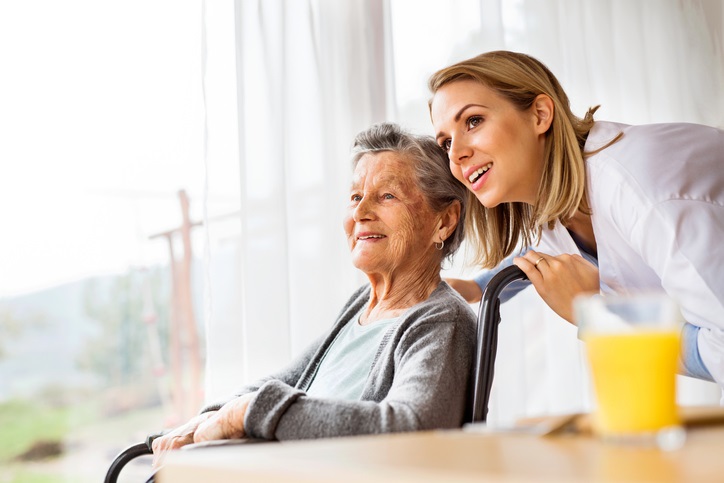How informed are you about informed consent? It’s important for all of us to know the criteria used to determine a person’s ability to make important health care choices, and how that ability can impact their quality of life. This is especially true for individuals receiving hospice care. Learn more here from THE MEDICAL TEAM.
Many older adults today face a variety of chronic conditions, including arthritis, diabetes, cancer, heart disease, COPD, Alzheimer’s disease – the list goes on and on. And for the majority of seniors, three or more concurrent health problems exist, making it challenging to effectively manage when factoring in multiple care providers, medications, and side effects.
Age-related macular degeneration can come on all of a sudden, with little warning signs or symptoms noted until the disease has progressed. While there is not yet a cure for the nearly 11 million people it impacts in the U.S., it’s encouraging to know there are steps that can be taken to slow the progression
With the majority of older adults taking multiple prescriptions – on average, as many as 14 different medications – it’s important to understand the potential side effects and interactions, and to reduce the risk of overmedication in seniors. While prescriptions are meant to improve health, without close monitoring, they can have the opposite effect. According
The term hospice care is one most families would rather not hear, and many people firmly decline this type of assistance until the need is imminent. However, the real benefit of hospice care comes through early intervention – in fact, the sooner hospice care is initiated, the more services the person will be able to
Although the jury is still out on what actually causes Alzheimer’s disease, the pieces of this puzzle are slowly coming together. Experts do know, for instance, that there are certain risk factors that can increase a person’s likelihood of developing the disease. To help those at risk to take steps to get tested and, if









